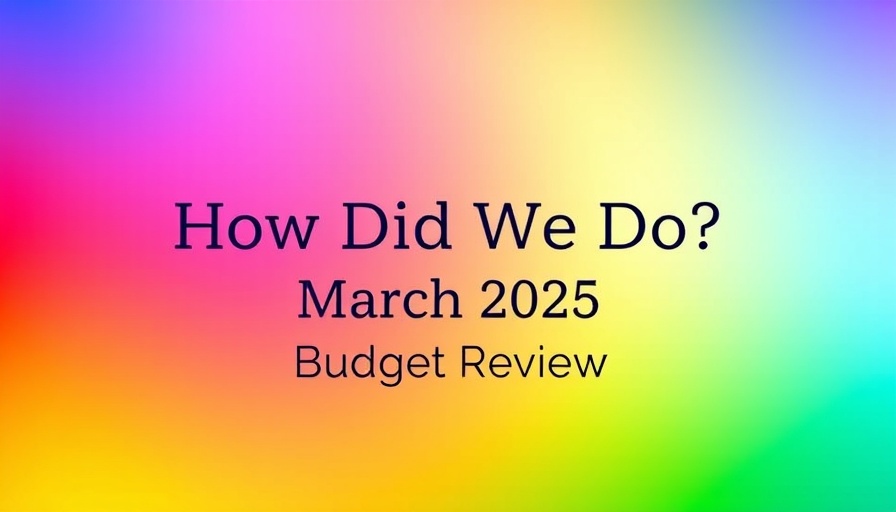
Mastering Finances: A Practical Approach to Zero-Based Budgeting
As families find themselves navigating the complex waters of household budgeting amidst rising costs, the practice of zero-based budgeting is gaining traction. Zero-based budgeting requires individuals to allocate every pound of their income to specific expenses, savings, or debt payments from the get-go, ensuring that no money is left unaccounted for. In a recent video by Natalie from Rainbow Budgets, she shares her experiences with this method for her UK family of five.
In 'Budget Close Out | March 2025 | How did we do? | UK Family of 5 | Zero Based Cash Stuffing Method', the discussion delves into family budgeting and the importance of planning in a changing economic climate.
Understanding Zero-Based Budgeting: Why It Works
In the video titled 'Budget Close Out | March 2025 | How did we do? | UK Family of 5 | Zero Based Cash Stuffing Method', Natalie reflects on her family's approach, noting how this method helps prevent overspending in categories like groceries or entertainment, which can easily balloon out of control if not actively monitored.
By assigning every pound to a category before the month begins, families can identify where they may need to adjust their spending. For Natalie, having a clear overview of leftover funds has allowed her to make intentional choices, whether it’s saving towards her children’s futures or splurging on a desired item.
Connection to Family and Spending Habits
The personal anecdotes shared by Natalie further illuminate how the zero-based method caters to the unique spending habits of families. For instance, she mentions the challenge of balancing her partner’s birthday festivities while keeping up with essential bills and entertainment, ultimately leading her family to engage in collaborative budgeting.
Future Insights: Shifting Priorities for Young Families
A key takeaway from Natalie’s experience is the shift in focus from debt reduction to saving for future family milestones, such as driving lessons or university funds for her children. Understanding and utilizing budgeting tools like these can enhance financial literacy among young families and first-time buyers, offering them a roadmap to responsible money management.
Actionable Tips for Aspiring Homeowners
- Utilize Cash Stuffing: Consider implementing cash stuffing methods to visualize and control your spending.
- Track Unbudgeted Expenses: Be sure to allocate money for unexpected costs. As Natalie noted, it’s vital to account for those "fun" expenses like take-out, which can easily deplete your budget if not tracked.
- Plan for the Unexpected: Your budget should allow wiggle room for emergencies—having a buffer can ease stress and help maintain financial stability.
In conclusion, as inflation continues to impact finances across the board, young families like Natalie’s showcase the importance of adaptability in budget planning. By exploring methods like zero-based budgeting, families not only learn to manage their current situation better but also lay the groundwork for a more secure financial future.
If you’re ready to take control of your finances and explore effective budgeting strategies, don’t hesitate to take action and start implementing these insightful practices today.
 Add Row
Add Row  Add
Add 




 Add Row
Add Row  Add
Add 

Write A Comment